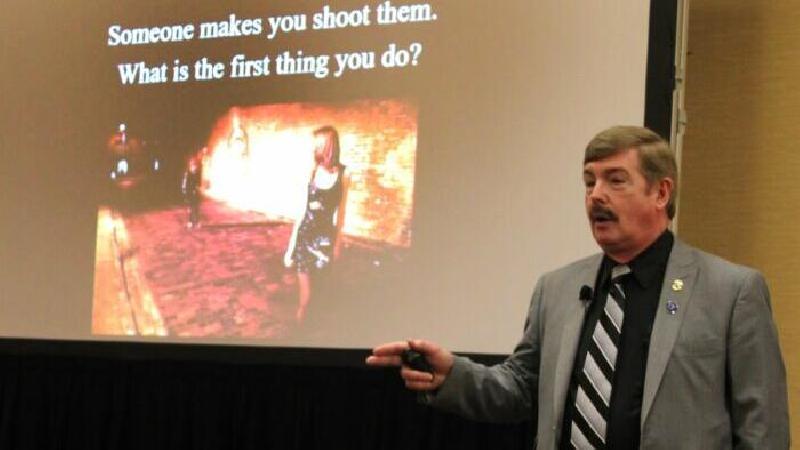The time for a holder of a concealed carry firearm permit to determine how to interact with the police during a traffic stop or other situation is before law enforcement ever becomes involved, according to an official with the National Rifle Association.
“You’ve got to think ahead; you’ve got to prepare,” Glen Hoyer told seminar attendees during the NRA’s Annual Meetings and Exhibits in Indianapolis on April 16.
At the NRA’s annual meeting, he leads the seminar, “Armed Citizen: How to Interact with Law Enforcement.” The seminar aims to provide law-abiding firearms owners with the information they need to make the process run as smoothly as possible.
He said the first step is for the gun owner to understand the mind of the police officer—who has one goal in mind.
“The officer’s No. 1 job, at the end of the day, is to go home to his family,” Hoyer said.
With that in mind, the officer will arrive ready to do what he or she needs to preserve everyone’s safety. It’s also important to realize that upon arrival, the officer will have limited information. So, he will do what he is trained to secure the scene, preserve evidence, and gather information, he said.
When firearms are involved in a possible crime, Hoyer said, people will be searched, handcuffed, and placed in a police car. This means the officer will use whatever force is necessary and legal.
“There is nothing personal; they are simply trying to secure the scene,” Hoyer said. “It’s a whole lot easier to apologize later.”
At the same time, it’s essential to know your rights and responsibilities under the law. Some states require a concealed carry license holder to immediately notify a police officer that they have a gun. Some only require answering truthfully if the officer asks, and some states don’t require notification.
“Know the law in your area,” Hoyer said.
In addition, he said it is essential to know your legal rights and to exercise those rights properly.
For example, under the Fourth Amendment of the U.S. Constitution, a citizen can refuse to allow a law enforcement officer with no warrant to search their person or property. However, arguing, taunting, or belittling an officer will only heighten tension. Politely declining could have long-term benefits.

